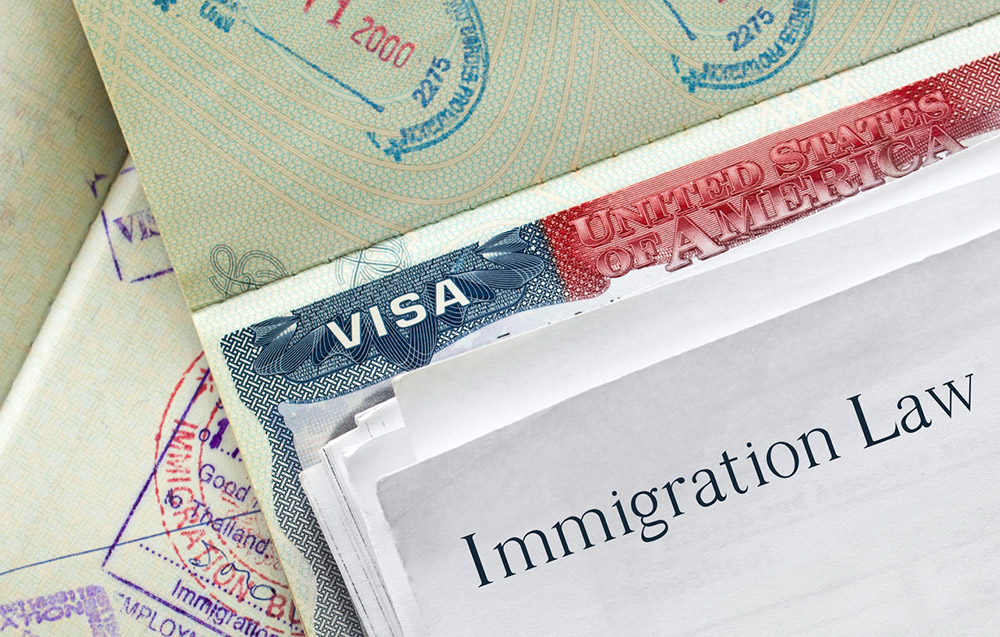Opening a business in the United States is a dream for many aspiring entrepreneurs from around the world. The U.S. offers a thriving economy, a diverse consumer base, and a conducive environment for business growth. However, for foreign nationals, there are specific requirements and steps to follow in order to establish a business presence in the country. In this article, Garrett J. Wilkes, an expert in immigration and international law, provides valuable insights into the requirements for opening a business in the USA as a foreigner.

Visa Requirements
One of the primary considerations for foreign entrepreneurs is obtaining the appropriate visa to operate a business in the United States. Garrett J. Wilkes highlights that the choice of visa largely depends on the nature of the business and the individual’s role within it. Some common visa options include:
E-2 Visa:
This visa is for investors from treaty countries. To qualify, an entrepreneur must make a substantial investment in a U.S. business. The E-2 visa allows the investor and their employees to work and live in the U.S. for the purpose of managing and developing the business.
L-1 Visa:
The L-1 visa is for intracompany transferees. It enables foreign companies to send employees to establish a U.S. office or affiliate. The employee must have worked for the foreign company for a specified period and must perform an executive, managerial, or specialized knowledge role in the U.S. office.
H-1B Visa:
This visa is for foreign workers with specialized skills and is commonly used by technology startups to hire skilled professionals. To qualify, the business must offer a specialized job role and meet prevailing wage requirements.
Business Structure and Registration
Foreign entrepreneurs must decide on the structure of their business entity when establishing a presence in the U.S. Garrett J. Wilkes notes that common business structures include:
Limited Liability Company (LLC):
A popular choice due to its flexibility and liability protection.
Corporation:
Provides separate legal entity status and potential tax advantages.
Partnership:
Suitable for businesses with multiple owners.
Sole Proprietorship:
Simplest form of business ownership but offers no liability protection.
Once the structure is chosen, entrepreneurs must register their business with the appropriate state authorities and obtain the necessary permits and licenses.
Business Plan and Investment
To meet visa requirements and demonstrate a commitment to the U.S. economy, foreign entrepreneurs often need to develop a comprehensive business plan. The experienced professional Garrett J. Wilkes emphasizes that this plan should include details on the business’s objectives, financial projections, marketing strategies, and job creation plans if applicable.
Moreover, foreign entrepreneurs must invest a substantial amount of capital into their U.S. business. The required investment amount varies depending on the type of visa and the location of the business.
Compliance with U.S. Tax Laws
Understanding and complying with U.S. tax laws is crucial for foreign entrepreneurs. Garrett advises seeking the assistance of a tax professional who specializes in international taxation to navigate complex tax regulations. This includes considerations such as corporate taxes, sales taxes, and reporting requirements.
Employment Laws and Hiring
If the business plans to hire employees, it must adhere to U.S. employment laws. Garrett J. Wilkes points out that this includes obtaining an Employer Identification Number (EIN), adhering to minimum wage laws, and complying with employment eligibility verification (Form I-9) requirements.
Immigration Compliance
Maintaining compliance with immigration laws is paramount. Garrett emphasizes that entrepreneurs must maintain their legal status and adhere to the terms of their visa, including any restrictions on employment or business activities.
Conclusion
Opening a business in the United States as a foreigner is a complex but rewarding endeavor. The experienced professional Garrett J. Wilkes stresses the importance of understanding and complying with visa requirements, business structures, investment criteria, tax laws, employment regulations, and immigration compliance. Seeking guidance from experienced professionals in immigration and international law can greatly facilitate the process and increase the chances of success. With the right knowledge and assistance, foreign entrepreneurs can turn their American business dreams into reality, contributing to the vibrant U.S. economy.
